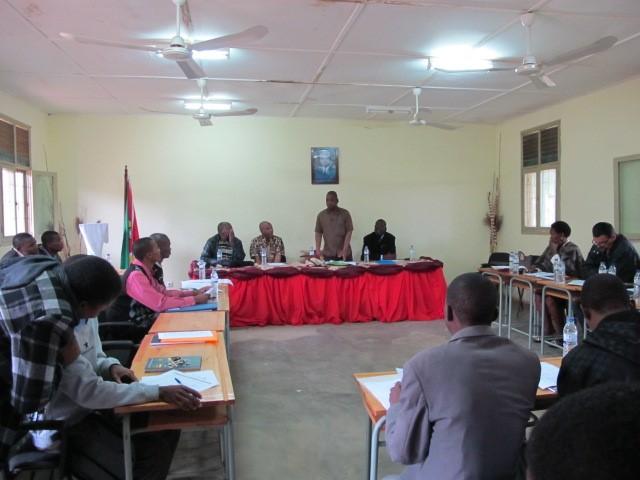
Within the context of support to the Ministry of Education and Human Development (MINEDH) on scaling up comprehensive sexuality education at the country level and in order to increase children and young people's knowledge on sexual and reproductive health and rights through access to high quality, comprehensive sexuality education, that is gender transformative, evidence informed and age and culturally appropriate, UNESCO conducted capacity building of in-service teachers in Maputo and Sofala Provinces at Institute of Teacher Trainers (IFP) of lnhamízua (27 September-3 October) and Chibututuíne (6 -12 September), respectively.
The capacity building of in-service teachers is in line with implementation of activities of the UBRAF project 2014-2015 "Improving Community Sexual Reproductive Health Education through a culturally appropriate, gender-responsive and rights-based approach". Specific objectives of these capacity building were to:
- Provide accurate information and knowledge on life-skills based comprehensive sexuality education, its importance
- and benefits mainstreaming the contents into the teaching and learning programme;
- Provide pedagogic approaches to teaching and integrating sexuality education in in-service teacher programmes;
- Identify entry points, content, teaching strategies and methodologies that could be used to deliver life-skills based comprehensive sexuality education;
- Empower in-service teachers in the planning of didactic activities on cross-cutting issues;
- Apply effective teaching methodologies when teaching sexuality education;
- Share monitoring and evaluation tools for cross-cutting issues;
- Plan pedagogical projects for the integration of cross-cutting issues.
- The training was delivered by using a variety of participatory teaching and learning approaches to explore participants’ beliefs, perceptions and attitudes.
Source: UNESCO Maputo Office
